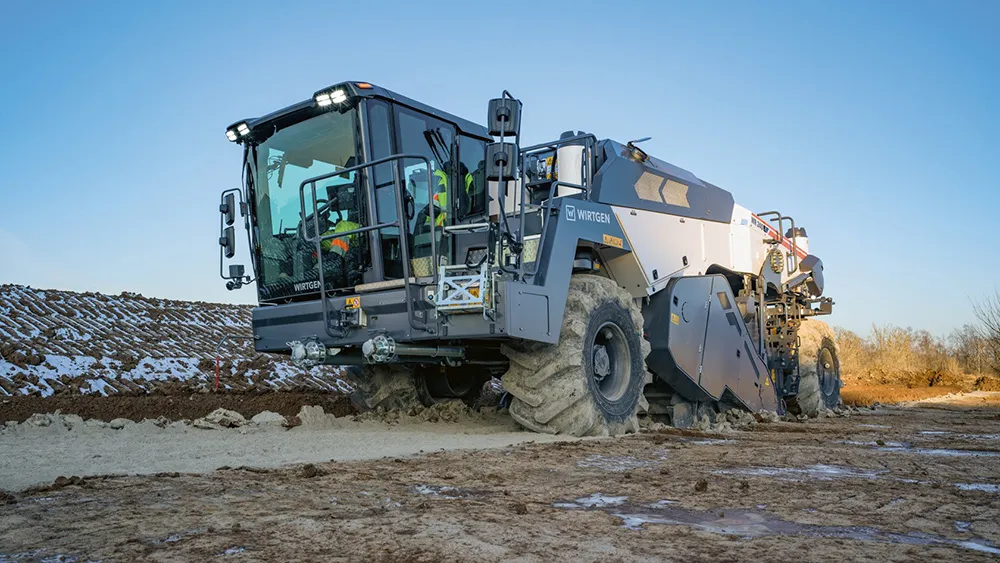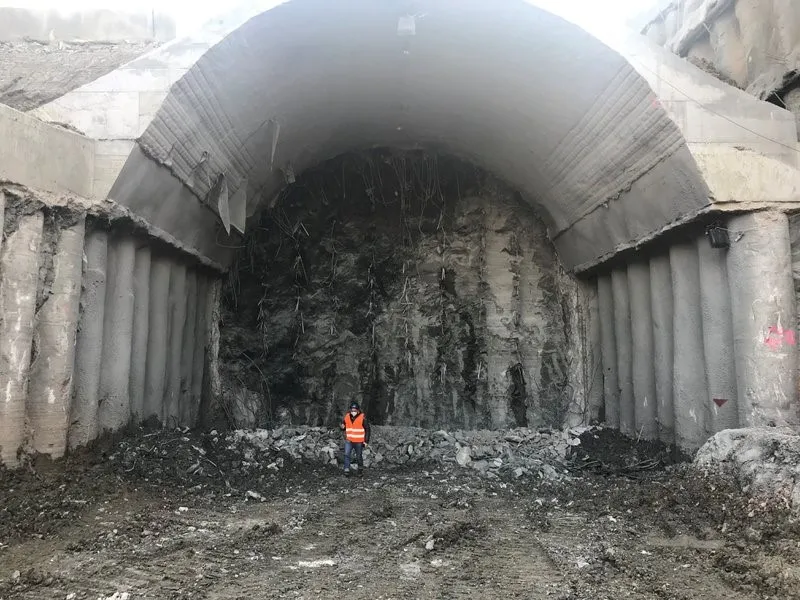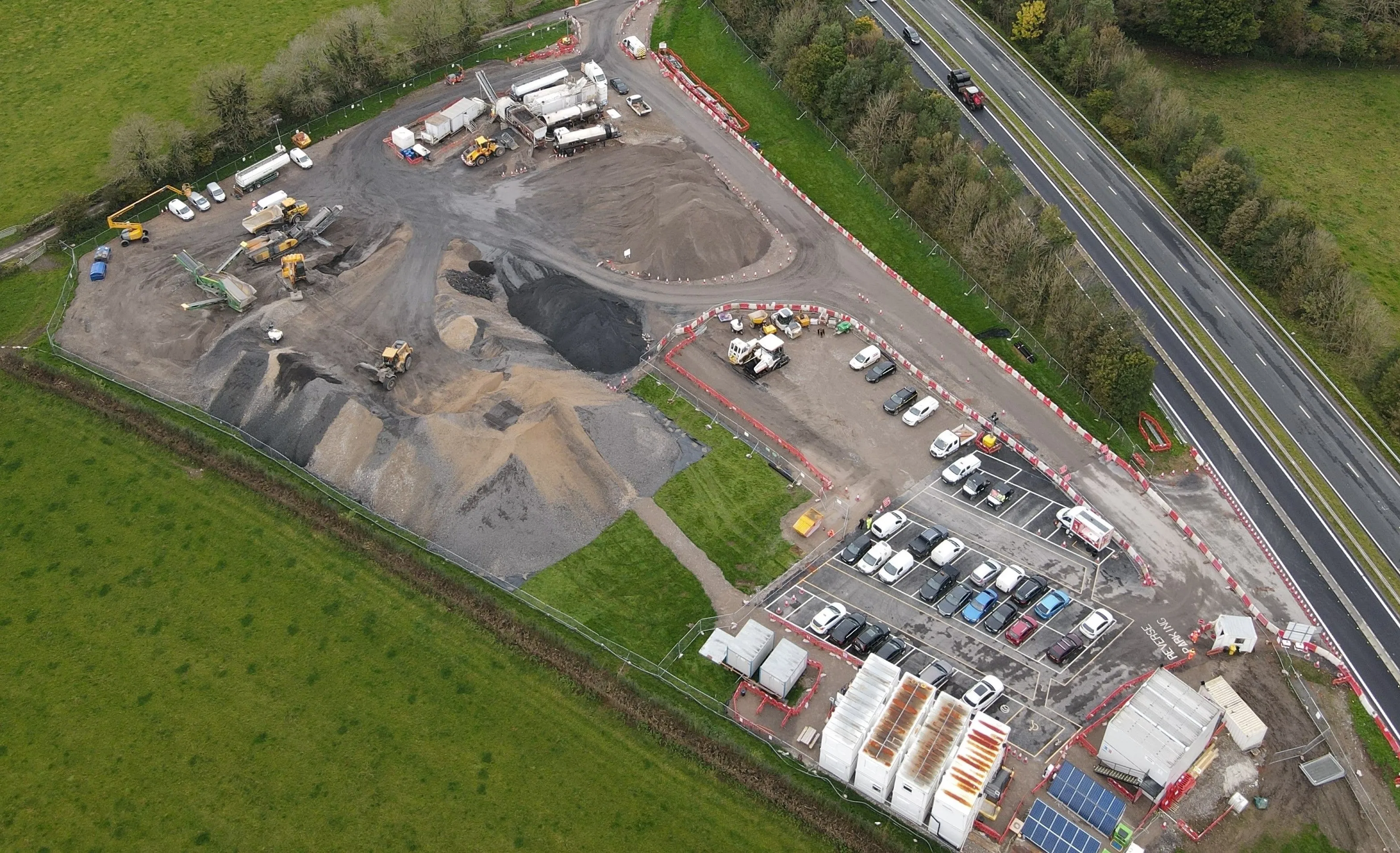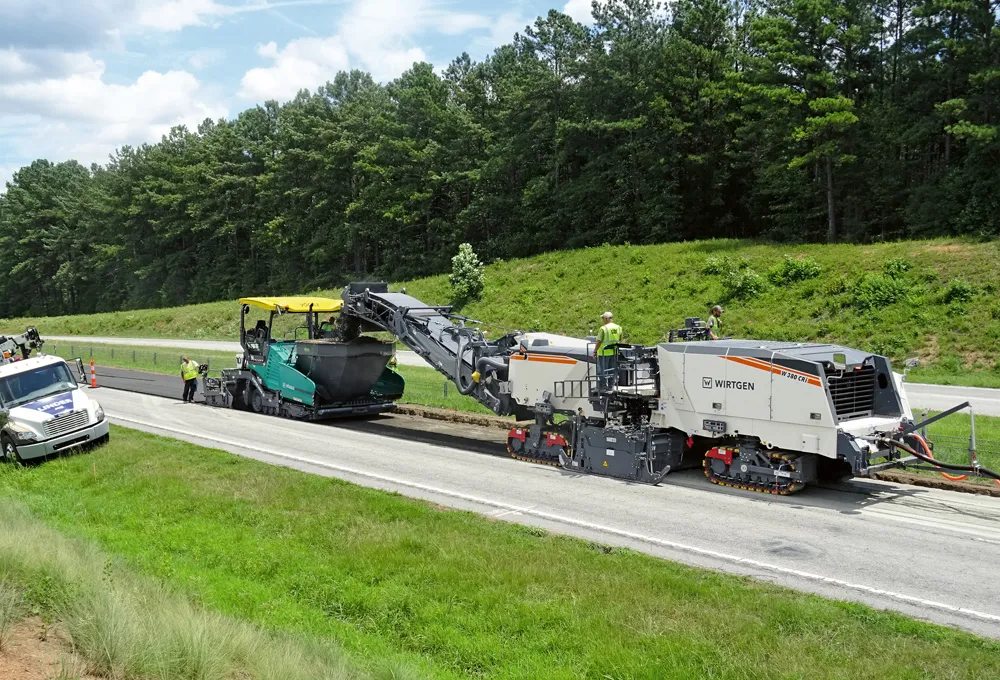
Wirtgen equipment was used for the job, rehabilitating the road surface to a depth of 200mm in a single pass. Of note too was that the equipment was able to operate in a single lane while allowing live traffic to flow alongside and without having to close the road section totally, reducing disruption to drivers.
The contractor employed Wirtgen’s new W 380 CRi model for the job on the four-lane Highway 123 in Pickens County. This was the first full-depth reclamation (FDR) operation used on roads maintained by the South Carolina Department of Transportation. The work was required as the highway surface had become severely worn on the 11km section of road, which handles up to 20,000 vehicles/day, around 15% of which are trucks.
The project was also to be used to simultaneously widen the roadway to 4.4m. “To this end, we initially milled off 60cm along the inner edge of the roadway that borders the passing lane," said Mike Crenshaw, president of the contractor King Asphalt, from Liberty, South Carolina, explaining the steps taken to prepare the road using two Wirtgen cold milling machines. Only then could the cold recycling train, led by the W 380 CRi, get rolling. The tracked cold recycler milled the damaged pavement at a width of 3.8m and a depth of 200mm in a single pass. In the process, it simultaneously granulated the material while mixing in 2.3% foamed bitumen, 1% pre-spread cement, and 3-4% water.
“In FDR work, stabilising the layers recycled with foamed bitumen gives the sub-base the structural strength it needs to withstand recurring loads over decades of use,” explained Mark Stahl, director of recycling products for the Wirtgen Group in North America.
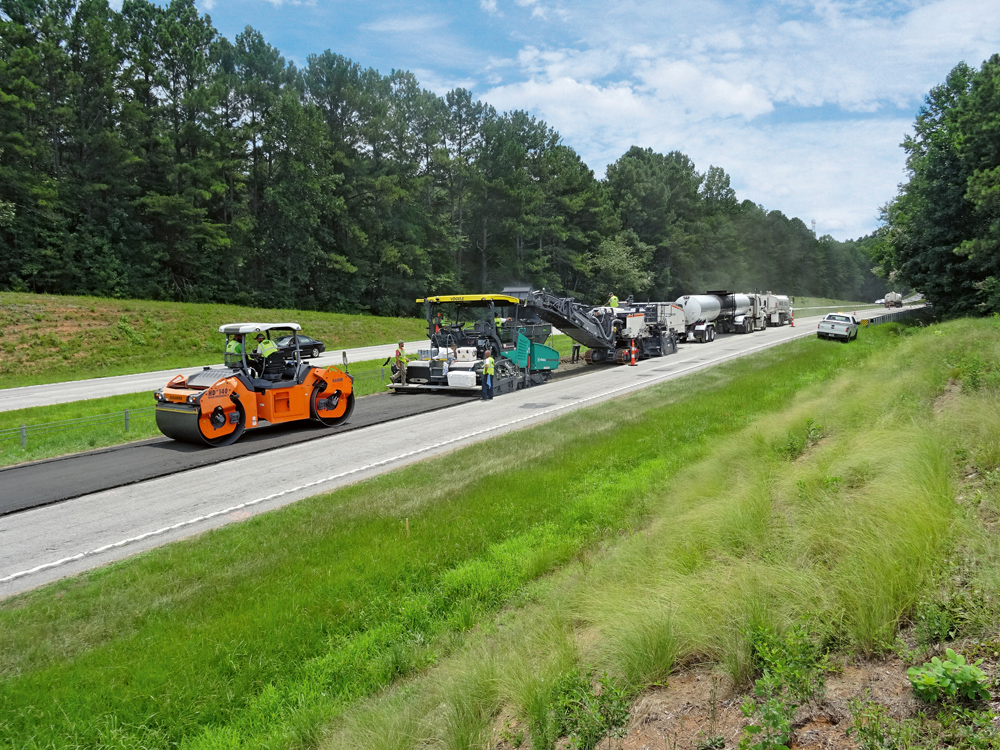
The mix design plays a critical role in this process. This means determining the appropriate amount of binding agent to use. To do so, Wirtgen laboratory equipment – the WLB 10 S laboratory-scale foamed bitumen plant and the WLM 30 laboratory-scale mixer – was used to test six different material samples in advance in order to identify the ideal mix composition for this project. At the end of the structural rehabilitation project, the powerful W380 CRi had recycled more than 102,000tonnes of asphalt in an environmentally friendly and high-quality manner using the optimum formula. Mike Crenshaw was delighted with the machine’s output of 427tonnes of recycled material/hour: “It worked like a charm. More than 7tonnes rolled over the discharge conveyor every minute.”
The W 380 CRi can also rehabilitate road surfaces that exceed the available working widths of 3.2m, 3.5m, and 3.8m. In this case, the recycler scoops up the material on the side that has been milled by a cold planer and adds it to the mixing process. The machine has a mixing capacity of 800tonnes/hour and can use its rear loading system to load directly onto the hopper of a road paver, which then uses its screed to lay the new surface. This recycling and paving train configuration means that wide road surfaces can be rehabilitated in a single pass.
Mike Crenshaw also regards the new W 380 CRi’s versatile range of applications as a clear advantage for his company: “It can also be used as a cold milling machine. This is a major advantage. The machine can be fully converted in only two hours.”


